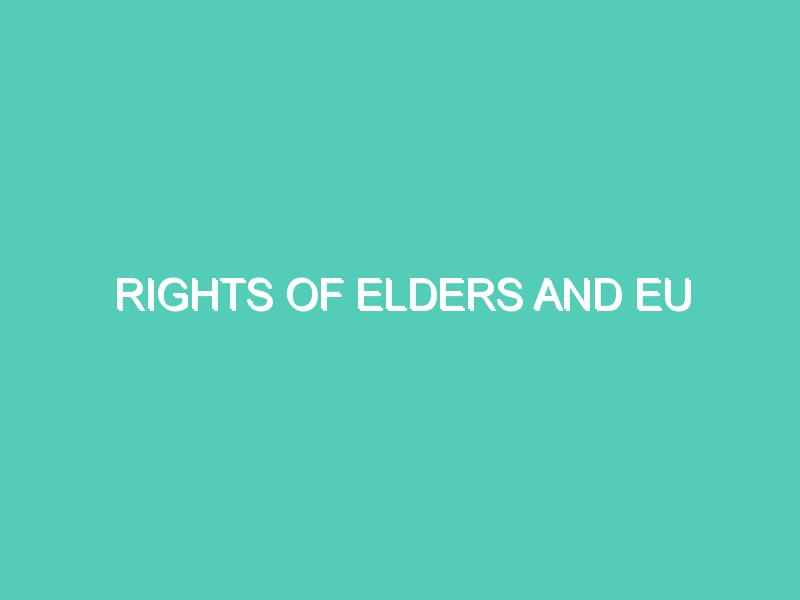This page brings together the work done at EU and global level to promote the rights of older persons. While our rights do not change as we grow older, older persons often face negative attitudes and age discrimination in particular in access to health care, employment, goods and services, information and education. Older people also face increasing barriers to their participation, become more dependent on others and lose some or all of their personal autonomy. These threats to their dignity can make them more susceptible to neglect, abuse and violation of their rights.
Milestones
- In 1997, the Amsterdam Treaty gave the EU competence for combating discrimination based on sex, racial of ethnic origin, religion or belief, age or sexual orientation.
- Since 2000, the European legislation protects everyone living in the EU from discrimination at work on grounds of age thanks to the Framework directive 2000/78/EC.
- In 2008 the European Commission proposed a new draft Directive to protect everyone living in the EU against discrimination based on age, disability, sexual orientation and religion or belief beyond the workplace (i.e. in access to goods and services)
- In 2009 the Treaty of Lisbon gave binding force to the Charter of Fundamental Rights, which dedicates an article (Art.25) on the rights of the elderly and sets out a whole range of civil, political, economic and social rights relevant for older people, such as the rights to non-discrimination, social security, health care and education.
- The UN Convention on the Rights of Persons with Disabilities (UNCRPD) is the first international human rights convention to be ratified by the EU in 2011, which will have to take into account the needs of the ageing population in its application.
- In 2010 the UN General Assembly established the Open-Ended Working Group on Ageing, which examines the international framework of the human rights of older persons.
- In February 2014 the CoE adopted a recommendation on the promotion of the human rights of older persons.
- In May 2014 Ms. Rosa Kornfeld-Matted was appointed by the UN Human Rights Council as Independent Expert on the rights of older persons.
- As of 2013 AGE can lodge complaints to the European Committee of Social Rights, a CoE body which rules on the conformity of States with the rights enshrined in the European Social Charter.
- The European Accessibility Act (December 2015) aims to contribute to improve the proper functioning of the internal market and remove and prevent barriers for the free movement of accessible products and services.
COURTESY: AGE | Platform Europe



